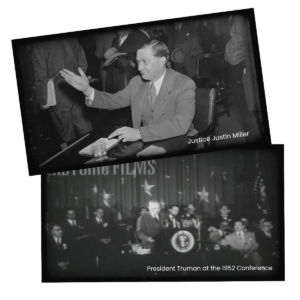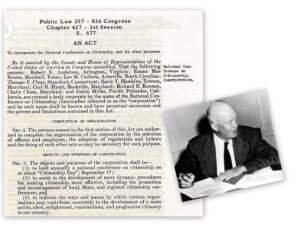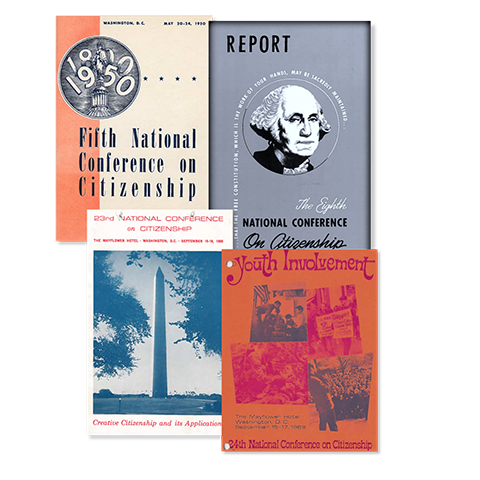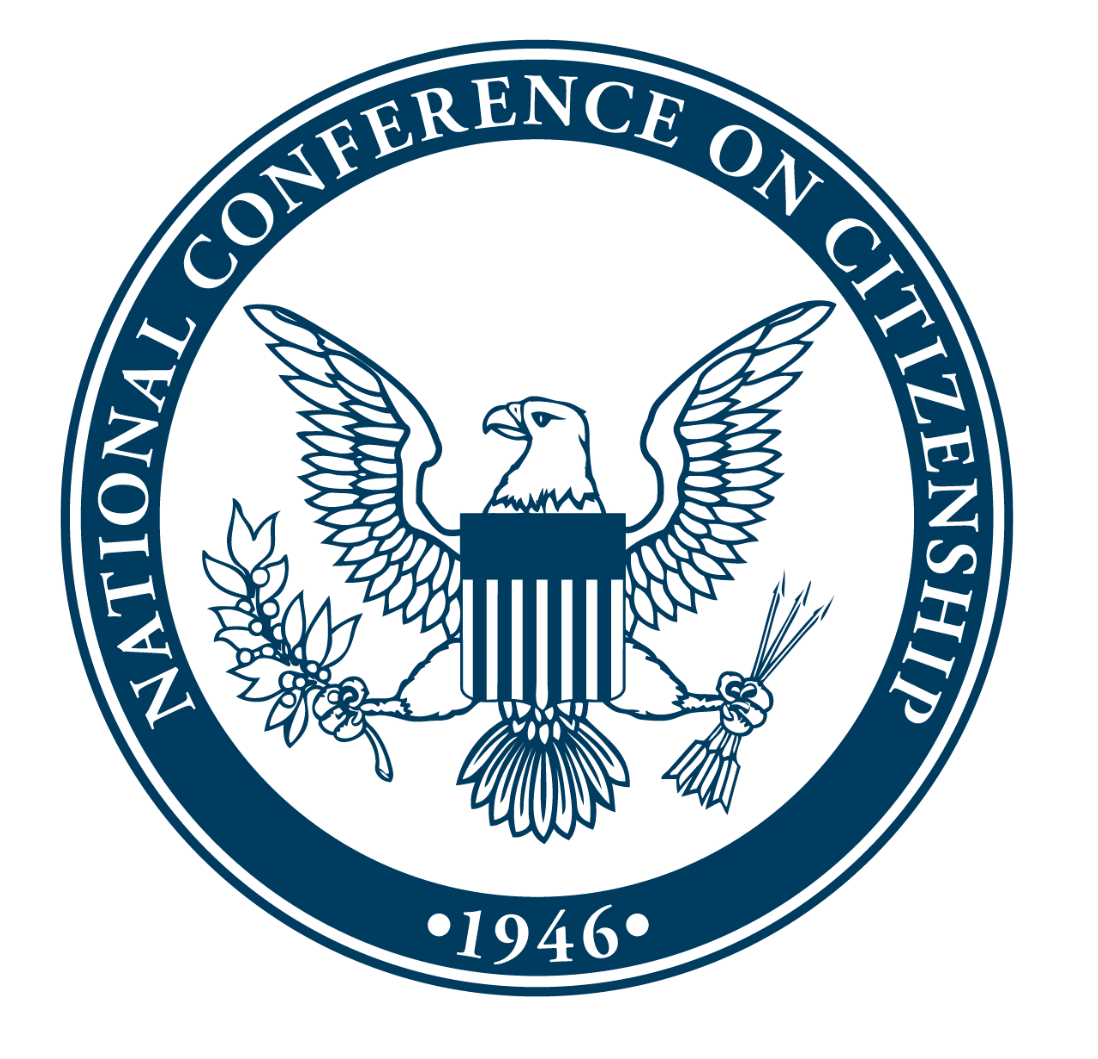Our Origin

The National Conference on Citizenship (NCoC) emerged from a powerful idea: that the spirit of cooperation and civic energy Americans displayed during World War II should continue during peacetime. In 1946, Justice Justin Miller gathered diverse sponsors to create what was first conceived as a “Good Neighbor Conference”—a gathering that would foster civic responsibility at the heart of American democracy.
That first conference in Philadelphia set in motion a tradition that continues today. With guidance from Attorney General Tom C. Clark and a message from President Harry Truman addressing how citizenship “assures that those who died in the struggle for peace should not have made the sacrifice in vain,” NCoC began its journey as a platform for crucial conversations on what it means to be an American citizen.
Our Congressional Charter

On August 13, 1953, President Dwight D. Eisenhower signed legislation that officially chartered the National Conference on Citizenship. This rare distinction—shared by only 94 nonprofits in America—recognized NCoC’s national significance and empowered us to “translate its ideals and objectives into realities.”
Our Congressional Charter formalized our commitment to “support and strengthen the efforts of the people in maintaining the blessings of freedom and justice and in protecting and perpetuating the principles and ideals upon which this Nation is founded.” It’s a responsibility we continue to honor through all our work.
Evolution of Our Mission
Throughout our history, NCoC has evolved to meet the changing needs of American democracy while remaining true to our founding purpose:
In NCoC’s early years, we sponsored the Freedom Train—a locomotive carrying the Constitution, Declaration of Independence, and Bill of Rights to more than 300 cities—and helped designate September 17 as “Citizenship Day.” Our conferences addressed integration, voter apathy, and the responsibilities of citizenship.
Throughout the 1960s and 70s, as America underwent profound social change, our conferences tackled civil disobedience, youth engagement, and the evolving relationship between citizens and their government.

For Over 75 Years, NCoC has:
Convened America’s most influential voices on citizenship—from Eleanor Roosevelt to John McCain to Justices Ginsburg, Scalia, and O’Connor
Advanced civil rights and integration through policy discussions and recommendations
Celebrated new citizens through naturalization ceremonies
Developed the first comprehensive measurements of national civic health
Created platforms for civic innovation and cross-sector collaboration
Fostered service opportunities for young Americans
Built a nationwide network of partners advancing civic renewal
